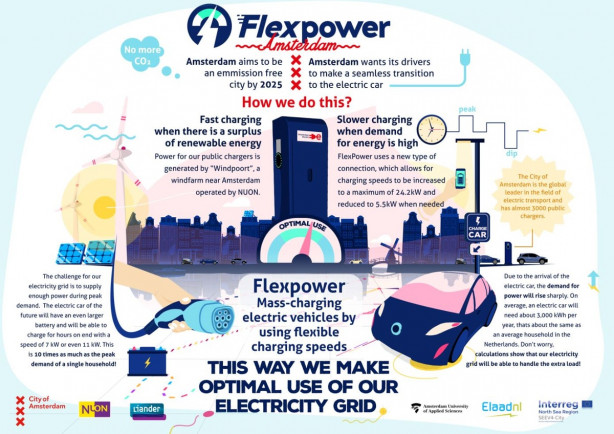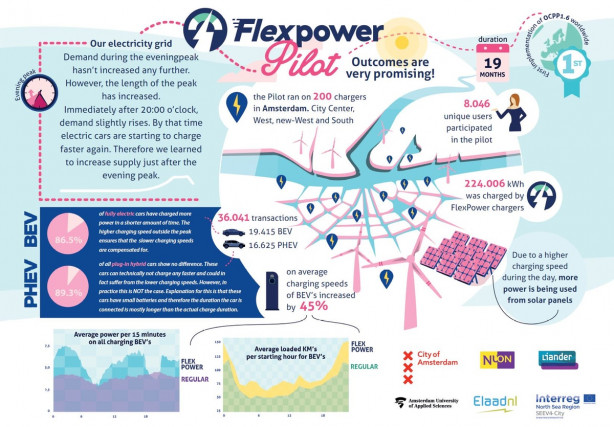Stay in the know on all smart updates of your favorite topics.
Smart City Haarlemmermeer - Digital Society School project
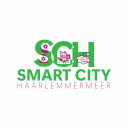
In large and diverse public organizations like the Gemeente Haarlemmermeer, communication can sometimes be hindered by silos. Different departments or teams in the organization may work independently leading to a lack of information sharing and coordination. With so many channels and platforms available, it can be difficult to filter out the information that is relevant and important to employees. This can lead to information overload and make it difficult for employees to stay updated on important updates.
Thus, the trainee team from the Digital Transformation Traineeship Programme at Digital Society School embarked on a challenge on how Gemeente Haarlemmermeer can be facilitated to become a smarter, more connected, transparent and digitally inclusive organisation.
Read more about the project on the website of Digital Society School!
BewustwordingsModel Smart City

Hoe slim is de ideale leefomgeving wat jou betreft, nu en in de toekomst? Wat betekent dat voor o.a. je strategie, diensten en technologie?
Vanuit phbm voegen we graag een gereedschap toe aan jouw Toolbox voor Smart City-vraagstukken. Eén waarbij we het voorstellings- en inlevingsvermogen activeren en welzijn centraal staat: het BewustwordingsModel. Dit model maakt de positie en wensen van jou en de ander expliciet en voorkomt dat er ruis ontstaat over het niveau van ‘slimheid’ in de leefomgeving. Door de toelichting van de passende organisatie, samenwerking, strategie e.d. bij de niveaus ontstaat een scherp beeld van wat het gekozen niveau betekent voor het individu, de organisatie of zelfs de samenleving als geheel. Eén van de centrale vragen bij het model is: hoe ‘smart’ wil je zijn en waar zit de optimale balans tussen mens en technologie?
Eerste gepubliceerde versie is tot stand gekomen samen met partners in de City Deal (‘Een slimme stad, zo doe je dat’). Het laat op vijf niveaus zien in welke mate een organisatie of bedrijf slim is. Eén van de doelen hiervan is om te bepalen of opdrachtgever en opdrachtnemer dezelfde taal spreken. Vanuit phbm zijn we doorgegaan op het model en hebben onder andere ethiek en mobiliteit als pijlers toegevoegd.
Het model is openbaar inzichtelijk, phbm begeleidt graag in het proces om samenwerkingspartners gezamenlijk bewuster te maken op welk niveau ze staan (gebruikmakend van het model) en met welke ontwikkelingen je rekening kan houden in het vraagstuk wat op tafel ligt (op vlak van organisatie, diensten of ethiek bijvoorbeeld).
Responsible digitalisation challenge: How to make digital systems more human-centric?
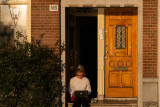
Technological and innovative developments are moving faster than ever before. As a government, you want and need to keep up with these developments. At the same time, the use of digitalisation and data often leads to undesired results, increasing the distance between citizens/entrepreneurs and the government.
The municipality of Haarlemmermeer is shifting her focus from 'the system is central, people have to become more digitally savvy to 'people are central, our systems have to become human-centric’. The underlying question is: how do you really put people at the centre of digitalisation and the design of digital systems?
Do you want to know more or contribute to this challenge? Contact me via sophie@amsterdamsmartcity.com or let me know via the comments below.
Project’s current phase
Jeroen Brink and Christine Groothuis from the municipality of Haarlemmermeer introduced this challenge to the Amsterdam Smart City network on the 7th of November, 2022. During a co-creation session, we discussed that there are two main elements of this complex challenge that we would like to focus on. On the one hand, we’re talking about a radical and fundamental shift. A different way of thinking within governmental institutions. This shift requires a more philosophical and substantive conversation about how we would like our digital public space and systems to look like. But on the other hand, we want to think big but also start small. Therefore, the municipality of Haarlemmermeer would like to embrace a real-life case to bring human-centred digital systems to life.
On the 1st of December, we organised a follow-up session with Amsterdam Smart City partners. During this session, Max Kortlander (Waag) presented the Public Stack. This project puts the public value at the centre to create open, democratic and sustainable digital public spaces. Following this introduction, we did a futures-thinking exercise led by Sacha van Tongeren (Kennisland), to think about how we want the digital public space to look like in the future. And additionally, we used empathy maps to synthesize our collective knowledge about our audience, which brought us closer to a common understanding of who they are.
Simple Sensors for responsible sensing

City officials require sensor data to optimize operations, plan projects, or measure effects of interventions. Citizens often do not notice the sensors deployed by the City in public space. Also, the benefit for the public is not directly obvious to city residents or immediately shown by the sensing systems in place. Namely, in many cases only after data is processed, it informs an action that affects citizens.
Public concerns about sensors are often connected to concerns about potential action (to be taken by, for example, city officials), and that the action has negative implications. With ‘Simple Sensors’ we address these concerns.
The Simple Sensors project, which is part of the Responsible Sensing Lab, investigates these questions: What if sensors are designed to be seen? What if they communicate clearly what data they collect and how? And what if sensors invite you to interact with them?
Modules for responsible and ‘simple sensing’
Simple Sensors consists of a family of modules, designed by The Incredible Machine, that can be combined: some modules improve transparency over what data is being collected, other modules encourage interaction, and some modules just make it understandable how sensors work. The Simple Sensors family allows the City of Amsterdam to design sensors to fit any context or purpose.
A privacy friendly alternative for CCTV
The first Simple Sensor prototype called millimeter wave (mmWave) has been developed as a proposal for the City’s crowd management sensor at the Marineterrein Amsterdam Living Lab. It consists of four modules: 1) sensor module 2) transmission module, 3) data module, 4) threshold module... Continue reading about the project on our website >>
The 100 Intelligent Cities Challenge

The 100 Intelligent Cities Challenge (ICC) is a European Commission initiative that supports 136 cities in using cutting-edge technologies to lead the intelligent, green and socially responsible recovery. The ICC cities and their local ecosystems will be engines for the recovery of their local economy, create new jobs, and strengthen citizen participation and wellbeing.
The ICC is part of a wider EU support system that recognises the importance of delivering on the promises made by the European Green Deal, the digital strategy, and other EU policies. It looks to move towards a more digital, service-oriented and low-carbon economy, supported by a knowledge-based society, that enables circular economy systems through ‘local value loops’, evidence-based reskilling, and sustainable investments.
Participating cities receive one-to-one strategic advice from international experts on fine thematic strands: green economy and local green deals, improving the citizen participation and the digitalisation of public administration, green and digital transition in tourism, resilience of local supply chains, up- and reskilling of the workforce. ICC Cities are also supported by transversal services on access to data, access to finance and through a marketplace full of innovative solutions.
The Amsterdam Region, represented by Amsterdam Economic Board and Amsterdam Smart City (ASC) is one of the ICC mentor regions, alongside European mentor cities Aarhus, Antwerp, Barcelona, Espoo, Hamburg, Nice, Porto, Rijeka and international mentors Medellin, Singapore and Toronto. By participating in the ICC, the Amsterdam Region will share its experience and learn from other best practices related to multi-stakeholder collaboration, innovation ecosystems, circular economy and citizen participation.
ICC Updates:
• Launch of 100 Intelligent Cities Challenge
• ICC Challenge Mayors’ Summit
• Launch of ICC Renovation Action Group
• Public Kick-off 2nd ICC City Lab
• ICC - 3rd City Lab
• 200 Intelligent & Climate Neutral Cities Jam
• ICC - 4th City Lab
• Invitation to co-create European transition pathways for more resilient, greener and digital industrial ecosystems
• ICC - 5th City Lab
• Developing circular and sharing economy practices in cities
• The 100 Intelligent Cities Challenge: Looking Back & Looking Forward (End of Phase 1)
Responsible Sensing Lab

Smart city systems can help solve urban challenges. But when collecting data, what public values are involved? The Responsible Sensing Lab explores how to integrate social values such as autonomy, privacy, transparency, inclusiveness and empowerment in the design of sensing systems in public space.
In January 2021 the Responsible Sensing Lab was officially launched during an interactive livestream event. In essence the Lab is a testbed for conducting rigorous, transparent, and replicable research on how our smart technologies placed in public space can be designed in a way that makes the smart city ‘responsible’. Responsible Sensing Lab is a collaboration between the City of Amsterdam and AMS Institute.
A lab for a ‘responsible’ smart city
The City of Amsterdam has many smart technologies in place: from smart devices that measure things (i.e. sensors) to smart devices that steer processes in the city (i.e. actuators) such as traffic lights, charging stations, adaptable street lights, barriers that go up and down, and adaptive digital signs.
At the Responsible Sensing Lab we research, develop and integrate smart technologies like the aforementioned to help solve urban challenges. At the same time, we explore how to embed society’s public and democratic values in the design of these innovations.
(Re)designing, prototype testing and implementing responsible sensing systems
Within the Lab academics are invited to connect and work with practitioners who are responsible for digital systems in the city to (re)design, prototype and test (more) responsible ways of sensing in public space.
Hence, Responsible Sensing Lab is a place where teams of multi-disciplinary stakeholders – such as computer scientists, policy makers, psychologists, designers and hardware experts – can address existing hardware, software and other city sensing systems.
Core values
At the Responsible Sensing Lab, we use the City’s values (TADA, Digital City Agenda) as our starting point. We explore what these values mean when applied to actual software, hardware, user-experience design and governance.
Also, we are inspired by the methodology of value sensitive design. This approach allows us to focus on design choices inherent in the type of sensing hardware, the distribution of intelligence between cloud and back-end, the physical design and placement of sensors in public space, and interaction possibilities for citizens.
Do you want to know more or are you looking to collaborate? Contact us via our website!
Wicked Problems
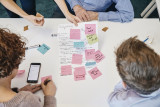
Te wicked? Niet voor ons.
Wij werken allemaal aan urgente, complexe, maatschappelijke uitdagingen. Issues die schier onoplosbaar lijken, van dilemma’s en paradoxen omgeven, nog niet duidelijk hoe het moet. Wel is duidelijk dát het moet, dat we elkaar nodig
hebben en dat we er NU aan moeten beginnen. Om met de woorden van Jan Rotmans te spreken; we leven niet in een tijdperk van verandering maar in een verandering van tijdperk. En hier hoort een nieuwe gereedschapskist bij.
En of je nou aan energietransitie werkt, andere mobiliteitssystemen, creëren van waterstofhubs, peer to peer autodeelsystemen, het maakt niet uit, we zien dat al deze opgaven op enig moment tegen gelijksoortige barrières aanlopen. Op samenwerking, financiering, privacy, onvoldoende aansluiting op de maatschappij, om maar een paar voorbeelden te noemen.
Unieke samenwerking
Als Amsterdam Smart City netwerk willen en kunnen we deze opgaven niet laten liggen. Door het bundelen van onze kennis en expertise kunnen we als netwerk iets unieks bieden en de wil en durf tonen om deze barrières te doorbreken. De betrokken partners die dit uitdenken en begeleiden zijn RHDHV, Kennisland, Drift, NEMO, Arcadis, Alliander, HvA en Metabolic. Zij bundelen hun expertise en ervaring om de echte vragen boven tafel te krijgen, tot nieuwe manieren van samenwerken te komen en barrières te doorbreken. We richten ons met name op de start van de samenwerking. Gezamenlijk ontwikkelen we een ‘wicked problem aanpak’. Op een nieuwe manier, lerend door te doen, exploratief.
Waar moet je aan denken?
Wat is eigenlijk het echte probleem? Wiens probleem is dit? Hoe kijken anderen er tegenaan? Welke andere partijen lijken nodig? Hoe vind je ze? Hoe ga je om met eigenaarschap en botsende frames? Hoe zorg je dat je al in
een vroeg stadium de maatschappij (bewoners, ondernemers, werknemers, etc) betrekt en hun ervaringen in het project trekt? Het wicked problem team zet nieuwe methoden in voor het beantwoorden van deze vragen. En het creëren van de benodigde commitment om het vraagstuk aan te pakken. Niets staat van te voren vast, want we passen ons aan aan wat we tegenkomen. Met elkaar ontwikkelen we een nieuwe aanpak om de barrières te doorbreken.
Transition from Smart to Inclusive city

The primary objective of this research project is to enhance an understanding of the concept of inclusion and its criteria in Smart city discourse. The research ambition is applying the result as a tool for benchmarking inclusive smart cities, which can assess and improve them. To apply the result, we aim to work with cities like Amsterdam, The Hauge, and Rotterdam.
EC-Link Platform

You would like to connect with Urban Environmental Sustainability practitioners and researchers in China and exchange your approaches to green transport, clean energy, compact urban development, water and solid waste management, green buildings and municipal finance? Then sign up to the EC-Link platform! The platform links Eco Cities across Europe and China, offering inspiring examples from both sides of Eurasia and enabling direct contacts to the innovators. With the help of an integrated translation tool, posts can be translated into Chinese and English with just one click. Use of the platform is free of charge: http://eclink.org/bbs/#/?lang=en
A description of how the platform works can be downloaded here: http://eclink.org/ec_platform/upload/document/EC-Link_Users'%20Guide-EN.pdf
EMPOWER2.0

The project aims to demonstrate and accelerate the empowerment of citizens to become active energy citizens - and to create local energy communities via existing civil society structures - through development of new solutions (e.g. organisational) and adoption of new, emerging and existing solutions for energy ownership.
Amsterdam Innovation Tour
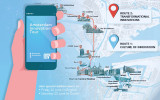
Those with an interest in urban innovation topics can now discover what makes Amsterdam an innovative, smart city without the timing and logistical constraints of a guided tour. The new self-guided Amsterdam Innovation Tour enables local and international stakeholders to immerse themselves in learning about the City’s innovative projects at any time — day or night.
Smart Stedenbouw

In the light of the technologization and digitalization we're going through at the moment, we recognize the need to rethink urban design. Thanks to the internet, we can be anywhere we want. Thus changing the needs of a city's citizens. Additionally, smart city applications in public space raise questions regarding privacy and ownership.
City-zen´s legal and financial challenges

Legal and financial challenges that are experienced in France and the Netherlands when developing sustainable projects in the built environment.
City-zen was an international consortium, a program stimulating learning-by-doing in Grenoble and Amsterdam between March 2014 and November 2019. The results can be found in a booklet or in detailed reports. http://www.cityzen-smartcity.eu/home/reporting/deliverables/
HEAT

HEAT is the number one solution to the prolonged decision-making processes typically involved in energy issues. HEAT allows parties to co-design and develop a heating grid.
Quick: HEAT provides instant feedback about your own actions and those of your partners, providing an immediate and clear understanding of your and their goals and interests, funding, and the sustainability of the design.
Effective: Any range of scenarios and designs can be tested without a problem using HEAT. Decision-making is speeded up and projects are implemented quicker.
Realistic: Realistic simulations based on real data and smart mathematical models. 3D simulations of the city or neighbourhood that you and your partners wish to make greener.
AI and Big Data City Council Trial

Citibeats is a start-up based in Barcelona and we have been awarded funding to launch a proof-of-concept (lasting one month) with a limited number of cities - at no cost to the city organisation.
Our software leverages AI and Big Data to promote a more responsive, transparent and inclusive governance; providing governments with accurate situational analysis and prioritisation of solutions in a city.
We have been recognised by the UN, European Commission and NTT Data for our work in this area (see the video below for more info): https://youtu.be/JlqFpgUIJMQ
Do you want to listen to your citizens’ voices?
Do you want to empower them to create actionable change that will improve the city?
At Citybeats, we are seeking launch partners to pioneer a new model for creating sustainable and engaging communities.
Visit <http://citibeats.net/> or contact <a>cquigley@thesocialcoin.</a>com for more info.
A Living Lab Way of Working
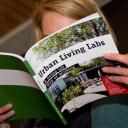
Providing you practical tips and tricks to improve your living lab. Check out the publication in the link below!
Open Council Information (Open Raad Informatie)

(Dutch)
Het doel van Open Raadsinformatie is om documenten zoals verslagen, voorstellen, stemuitslagen en moties van gemeenten op een gestandaardiseerde wijze als open data te ontsluiten. Door hergebruik van de informatie kunnen innovatieve toepassingen gemaakt worden die de lokale democratie versterken. Al dan niet door meer inzicht te verschaffen in de gegevens, analyse mogelijk te maken of participatie eenvoudiger te maken. Via de
zijn meer dan 30.000 documenten van inmiddels zeven gemeenten te vinden. De informatie is via de zoekmachine
te doorzoeken. Het project is in de tussentijd onderdeel geworden van het Actieplan Open Overheid 2016-2017 en van de Digitale Agenda 2020 van VNG en KING. Vanuit de Pilotstarter wordt nu verder gewerkt aan het project.
PILOTSTARTER
De Pilotstarter kent drie fases, pilot, praktijkbeproeving en opschaling. Voor de zomer is door de Open State Foundation samen met VNG-KING gewerkt aan de pilotfase. Samen met de gemeente Utrecht, die al in de pilot van 2015 haar raadsinformatie als open data heeft ontsloten, is gewerkt aan verbeteringen omtrent de herbruikbaarheid van de data. Er is samen met de griffie van de gemeente Utrecht en hun raadsinformatieleverancier gewerkt aan het ontsluiten van machine-leesbare stemuitslagen, presentielijsten, personenregister en tekst-doorzoekbare moties en amendementen. Bekijk hier een voorbeeld vanuit de zoekmachine en de API. Eerder waren deze gegevens niet op een goede manier uit de data te halen, terwijl hergebruikers hier wel om vragen.
PRAKTIJKBEPROEVING
De pilot met de gemeente Utrecht om beter herbruikbare open data te ontsluiten was succesvol. Nu wordt er door KING in samenwerking met de Open State Foundation gewerkt aan de praktijkbeproeving. Dat betekent dat de methodiek die toegepast in de gemeente Utrecht opgeschaald wordt naar een extra aantal gemeenten met ook een andere leverancier. Lukt het bij gemeenten, met bijvoorbeeld een kleinere griffie of andere systemen, ook om dezelfde informatie te ontsluiten? En hoe kan het project verder opgeschaald worden voor alle gemeenten? Daarnaast werkt KING aan een gezamenlijke standaard voor het ontsluiten van raadsinformatie door raadsinformatieleveranciers. Een doel dat opgenomen staat in het Actieplan Open Overheid.
LEVERANCIERS GAAN OPEN
Van de vijf grote raadsinformatieleveranciers, zijn er momenteel vier die raadsinformatie als open data via een API kunnen aanbieden of hieraan werken. MSI (iBabs) ondersteunt open data ontsluiting via een API al vanaf het begin, Company Webcast en GemeenteOplossingen hebben sinds enkele maanden ook een API-koppeling actief. NotuBiz heeft onlangs laten weten vanaf medio 2017 Open Raadsinformatie technisch te kunnen ondersteunen.
PRAKTIJKBEPROEVING
Op dit moment werken we samen met tien gemeenten die gebruik maken van iBabs Dossiers of GemeenteOplossingen voor de Praktijkbeproeving. De resultaten van deze Praktijkbeproeving worden verwacht in april 2017. Heb je interesse of vragen? Neem dan contact op met <a >Tom Kunzler.</a>
In de tussentijd kun je alvast bij jouw raadsinformatieleverancier aangeven dat je interesse hebt in het beschikbaar stellen van de eigen raadsinformatie als open data. Er is ook een FAQ waar je antwoorden op veelvoorkomende vragen.
Capturing the societal value of smart energy systems

Addressing key moral considerations of smart energy systems that are relevant for both now and in the future.
The Amsterdam Approach to Asylum Statusholders
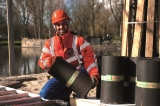
A conclusive approach for every status holder that enters the Amsterdam Approach to Asylum Status Holders.
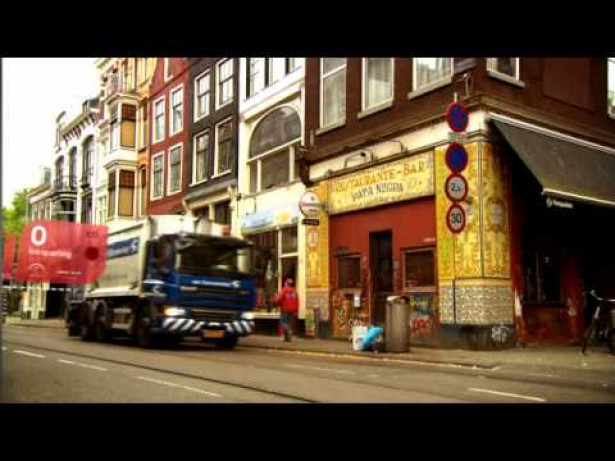
Stay up to date
Get notified about new updates, opportunities or events that match your interests.

